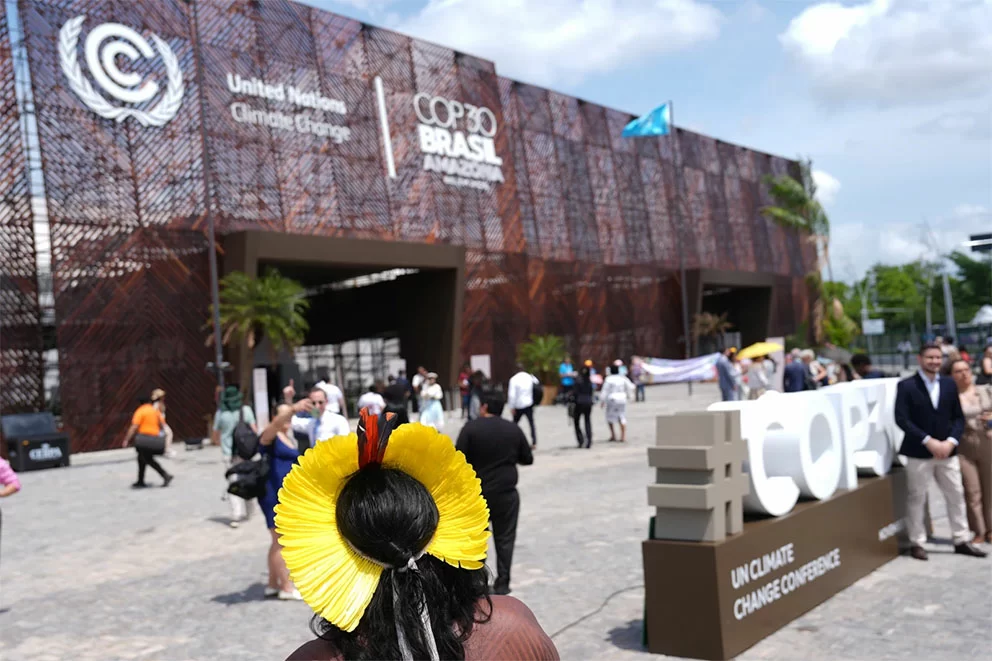The United Nations Climate Change Conference, COP30, held near the Amazon rainforest in Brazil, began with an unexpected power outage during its opening ceremony. Indigenous participants, accustomed to adapting to challenges, responded by singing, dancing, and offering prayers to maintain the atmosphere, despite the lack of microphones and technical equipment. This incident, while symbolic of resilience, also highlighted broader skepticism about whether the conference, dubbed the ‘Indigenous COP,’ will truly fulfill its promises to center Indigenous communities in climate action. Indigenous peoples, who make up about 5% of the global population, protect over 80% of the world’s remaining biodiversity. Their traditional knowledge and sustainable practices are vital for ecosystem preservation, yet they remain disproportionately affected by climate change due to their vulnerable habitats and reliance on natural resources. Historically marginalized and often excluded from decision-making processes, Indigenous communities face significant barriers to meaningful participation in international climate negotiations. Despite COP30 being framed as a tribute to Amazonian Indigenous peoples, many representatives are still confined to national delegations, limiting their influence on policy outcomes. Practical challenges, such as language barriers, funding shortages, and limited access to housing in Belém, further hinder their involvement. Activists like Thalia Yarina Cachimuel and Edson Krenak emphasize the need for systemic changes to ensure Indigenous voices are heard and respected. While COP30 offers a platform for greater inclusion, the conference’s success will depend on translating promises into actionable policies that directly benefit Indigenous communities.
